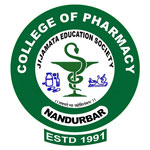IQAC Objectives

IQAC Objectives
About IQAC
Establishing the Internal Quality Assurance Cell (IQAC) in accordance with NAAC criteria is a crucial step in preserving the Institute’s long-term quality standards. It serves as the institution’s nodal agency for coordinating quality-improving initiatives, such as the adoption and promotion of best practices, and it implements standards and benchmarks for various academic and administrative tasks.
Goal:
To create a structure for deliberate, persistent, and catalytic action to enhance the institution’s performance in both academics and administrative. To encourage actions that will help institutions run better by internalizing a quality culture and institutionalizing best practices.
Strategies:
The IQAC will develop mechanisms and procedures for: a) ensuring the timely, efficient, and progressive performance of academic, administrative, and financial tasks; b) ensuring the relevance and quality of academic and research programs; c) ensuring equitable access to and affordability of academic programs for different sections of society; d) optimizing and integrating modern teaching and learning methods; e) ensuring the validity of evaluation procedures; and f) ensuring the adequacy, maintenance, and repair of facilities.
Functions of IQAC:
- Development and application of quality benchmarks.
- Parameters for various academic and administrative activities of institution.
- IQAC is formed and approved by the Governing body to take care of quality assurance strategies and process.
- Facilitating the creation of a learner-centric environment conducive to quality education and faculty maturation to adopt the required knowledge and technology for participatory teaching and learning process.
- Collection and analysis of feedback from all stakeholders on quality-related institutional processes.
- Documentation of the various programmes/activities leading to quality improvement.
- Periodical conduct of Academic and Administrative Audit and its follow-up.
Objectives:
- Development and application of quality benchmarks.
- Facilitating the creation of a learner-centric environment conducive to quality education and faculty maturation to adopt the required knowledge and technology for participatory teaching and learning process.
- Collection and analysis of feedback from all stakeholders on quality-related institutional processes.
- Periodical conduct of Academic and Administrative Audit and its follow-up.
